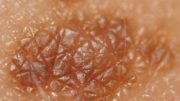
According to recent research, women who use feminine products may have greater blood levels of volatile organic compounds (VOCs) than those who do not.
New research suggests that women’s feminine hygiene practices – in particular vaginal douching and use of feminine powder – may be associated with higher levels of volatile organic compounds (VOCs) in their blood.
A new study that used biomarkers to link use of feminine hygiene products to VOC exposure is published in Journal of Women’s Health, a peer-reviewed publication from Mary Ann Liebert, Inc., publishers. (Click here to read the full-text article on the Journal of Women’s Health website through November 30, 2019.)
The article entitled “Exposure to Volatile Organic Compounds and Use of Feminine Hygiene Products among Reproductive-Aged Women in the United States” was coauthored by Ning Ding, MPH, Stuart Batterman, Ph.D., and Sung Kyun Park, ScD, School of Public Health and College of Engineering, University of Michigan, Ann Arbor.
Feminine hygiene products also included tampons, sanitary napkins, sprays, wipes, and other products. The researchers showed that black women used vaginal douching significantly more and had significantly higher whole blood concentrations of 1,4-dichlorobenzene (DCB). Use of feminine powder was significantly associated with higher blood concentrations of ethylbenzene. These products may be a direct source of VOC exposure or they may be related to other activities that increase exposure.
Susan G. Kornstein, MD, Editor-in-Chief of Journal of Women’s Health and Executive Director of the Virginia Commonwealth University Institute for Women’s Health, Richmond, VA, states: “Based on the findings of this study, feminine hygiene products that expose the vulvovaginal tissue to harmful VOCs should be avoided, especially during pregnancy.”
Reference: “Exposure to Volatile Organic Compounds and Use of Feminine Hygiene Products Among Reproductive-Aged Women in the United States” by Ning Ding, Stuart Batterman and Sung Kyun Park, 19 September 2019, Journal of Women’s Health.
DOI: 10.1089/jwh.2019.7785
Research reported in this publication was supported by the National Institutes of Health under Award Number P30-ES017885. The content is solely the responsibility of the authors and does not necessarily represent the official views of the National Institutes of Health.









In the pursuit of cleanliness, do not forget that some tools can harm you. Choose high-quality hygiene products with a good composition. And do not forget that hand washing in public places and at work is just necessary, as well as frequent disinfection of the desktop. This will significantly help keep your health safe during a pandemic.